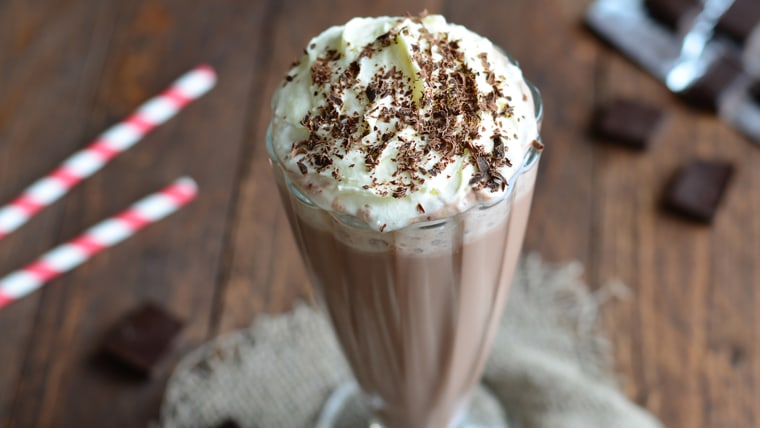Is the cake in the break room calling your name? Do you dump packets of sugar into your morning coffee? Do you always do dessert?
You’re not alone. Americans suffer from serious sugar cravings, with most people consuming 22 teaspoons a day — about three times as much as the American Heart Association recommends.
“Most foods in nature that are sweet are not toxic. Most toxins from nature are bitter. And the very food, the first food that animals, mammals are exposed to is slightly sweet. And that’s their mother’s milk,” Dr. David Katz, founding director of the Yale University Prevention Research Center tells TODAY.
Much of the sugar that Americans consume comes from processed foods, making it all too easy for people to exceed their daily dose. A 12-ounce can of soda contains 10 teaspoons of sugar; someone opting for soda at lunch has already exceeded her limit. Even foods that seem safe, such as baby foods, contain high levels of sugar.

Researchers have been examining our troubled relationship to sugar. At Yale University, experts use MRI scans to understand the brain under the influence of sugar. Thirteen-year-old Emma Severance received tiny doses of milkshakes as Dr. Barkha Patel looks at her brain activity. When Severance tastes the milkshake, her brain fires with activity, indicating its excitement.
“We think that—the greater response in these regions might be—might be a risk factor for overeating foods that are really delicious, really palatable,” Patel says.
Why do we have a sweet tooth? 5 things you may not know about sugar
Researchers at the Fast Food Lab at the University of Michigan explore the relationship between food and addiction in a lab that looks like a fast food restaurant.
In the lab’s study on sugar, people play a computer game where they can earn more of their favorite of three milkshakes. Unsurprisingly, most people work hard to get the sweetest milkshakes.
“People, especially those people who are at risk for obesity, they are willing to work much harder to get those junky, sugary processed foods,” says Dr. Ashley Gearhardt.
Sugar works in the brain much like drugs, it seems.
“What we see is that sugar does seem to activate many areas of the brain in a way that’s similar to drugs of abuse,” she says. “Now do we know enough right now to say, “Sugar’s addictive.” We absolutely don’t know that yet, but the research that’s out there, really makes … you say we need to research this more.”
But the Sugar Association claims that sugar isn’t addictive.
“The scientific evidence just doesn’t indicate that sugar, or any other nutrient, is addictive,” adding “Targeting of all natural sugar is an oversimplified approach to the complex problem of obesity that is simply not backed by sound science.”
At least experts all can agree that eating a balanced diet with moderate amounts of sugar remains essential.
What's an added sugar? How to read the food labels
“The best way to improve the quality of the diet is to learn to love foods that love you back, to actually rehabilitate your taste buds and palate so that you prefer better foods,” says Katz. “And one of the properties of better foods is less sweet.”